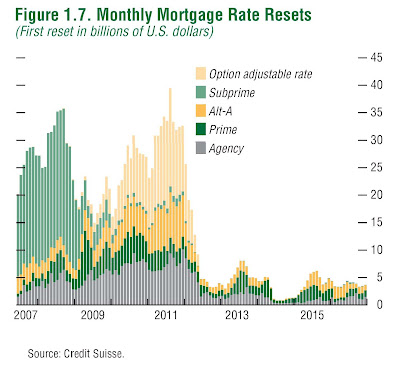Treehouse, thought you would want to read this article.
********************************************
Fla. highrise has 32 stories, but just 1 tenant
In this photo taken Thursday, July 30, 2009, the 32-story building, in which the only tenants are the Vangelakos family, is seen in Ft. Myers, Fla. Most of the other tenants in the 200-unit condo didn't close on their contracts, and the few that did have transferred to an adjacent building owned by the same company because more people live there.
<CITE class=vcard>By CHRISTINE ARMARIO, Associated Press Writer Christine Armario, Associated Press Writer </CITE>– <ABBR class=timedate title=2009-08-01T12:37:54-0700>Sat Aug 1, 3:37 pm ET
</ABBR>FORT MYERS, Fla. – The Vangelakos' southwest Florida condominium has marble floors, a large pool overlooking a river and modern furnishings that speak of affluence and luxury. What they don't have in the 32-story building is a single neighbor.
The New Jersey family of five purchased their unit four years ago, when Fort Myers was in the midst of a housing boom and any hints of an impending financial crisis were buried in lofty dreams of expansion and development. They made a $10,000 down payment and eagerly watched as builders transformed an empty lot into an opulent high rise, one that now symbolizes the foreclosure crisis.
"The future was going to be southwest Florida," said Victor Vangelakos, 45, a fire captain who planned to eventually retire and live permanently in the condo.
Most of the other tenants in the 200-unit condo didn't close on their contracts, and the few that did have transferred to an adjacent building owned by the same company because more people live there.
The Vangelakos' mortgage lender will not allow them to do the same.
That leaves them as the sole residents of the Oasis Tower One.
"It's a beautiful building," said their attorney, John Ewing, who is representing 27 others who made deposits on units. "The problem is, it's a very lonely building."
When the Vangelakos' travel from Weehawken, N.J., to spend a week or a few days in their Florida home, they have exclusive use of the pool, game room and gym, but they miss having a few tenants around.
"Being from the city, it's very eerie," Vangelakos said. "It's almost like a scary movie."
A large, circular fountain in front of the building is dry. The automatic glass doors that lead to the front lobby are locked. On the front desk is a guest sign-in sheet. The last entry: Feb. 13, 2009.
"It's like time froze here six months ago," Ewing said.
Vangelakos said they closed on the apartment in the fall, unaware the other tenants had failed to follow through. When they visited around Christmas, they didn't think much of the emptiness. They were just happy to be there.
"We wanted to believe," Cathy Vangelakos said. "We were looking for what we were offered."
On subsequent visits, however, the building grew more deserted.
The lights on the pool and palm trees were off. Their garbage shoot was sealed, a trash bin placed in front of their unit instead.
Despite the empty units, they faithfully parked in their assigned spot on the second story of the parking garage. Then those lights went off, too.
Then there were security concerns. One night, someone pounded on their door at 11 p.m. They called the front desk at the next door building, which contacted police. A search turned up no one, though a pool entrance was open.
Another morning they awoke to find lounge chairs in the pool.
The parents and their children sleep with their cell phones by their beds.
"I'm not a chicken, but this is a big building," Cathy Vangelakos said.
Betsy McCoy, vice president and associated general counsel with The Related Group, which sold the family their unit, said they have tried to help find a solution — even offering them a unit in the building next door, free of cost, while the situation is resolved.
"They haven't wanted to take us up on that," McCoy said Friday. "They frankly rejected every solution and offer and proposal that we've come up with."
McCoy said some of the interested buyers who put down deposits lost their jobs, others were unable to get mortgages and some were just nervous when the financial collapse came.
The Cape Coral-Fort Myers metropolitan area in Lee County has some of the worst economic stress — a combination of foreclosures, unemployment and bankruptcies — in the country, according to The Associated Press' monthly analysis of more than 3,100 U.S. counties.
The latest AP Economic Stress Index, which assigns each county a score from 1 to 100 with higher numbers reflecting the greatest stress from the recession, found Lee County had a score of more than 20. Anything above 11 is considered stressed.
Victor Vangelakos said they don't want to move to the tower next door because they would still be paying the mortgage and maintenance costs on the condo they own. They paid $430,000 for the unit and took out a $336,000 mortgage — essentially spending their life savings.
He'd like for The Related Group to buy them out.
"They want us to be refugees in Tower II," Victor Vangelakos said. "That's not how I expected us to live here."
The family's attorney said he has filed two lawsuits on behalf of would-be tenants because the building wasn't finished as promised. He said they expected a clubhouse, marina, private cinema and restaurants.
McCoy said those amenities could be developed, but were never promised.
On Friday evening, the pool area was dark, most of the doors locked. Cathy Vangelakos and her 19-year-old daughter, Amanda, stepped into an elevator to head up to their unit. "Going up," an automated voice chimed.
"Going up," Cathy Vangelakos said. "That's all we hear."








